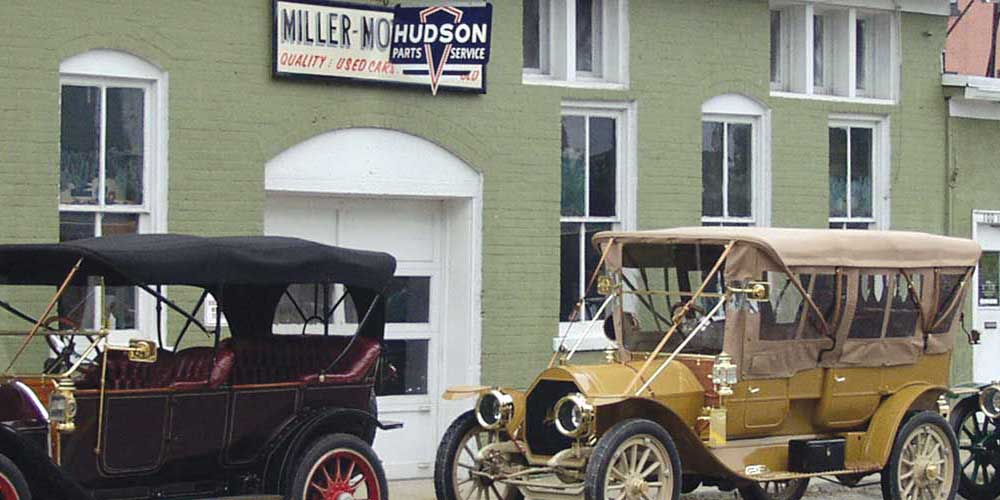By Robert Tate, Automotive Historian and Researcher
Images Courtesy of the U.S. Army official poster, The Library of Congress, The Fraley Family, and the Detroit Public Library Digital Collection
Published 3.18.2020
![]() The iconic Rosie the Riveter poster (US Army)
The iconic Rosie the Riveter poster (US Army)
When you look back at American history and the contributions that women have made in manufacturing, the name “Rosie the Riveter” will always be a part of our heritage and culture. During World War II, many women made a difference in producing the necessary military weapons and supplies, moving the country forward and extending far beyond Detroit.
 Naomi Parker Fraley (Fraley Family)
Naomi Parker Fraley (Fraley Family)
The term Rosie the Riveter started out with a waitress named Naomi Parker Fraley, who lived in California. Other women who were part of the Rosie the Riveter name and symbol included the late Geraldine Hoff Doyle, a Michigan native, and Mary Doyle Keefe, who died in 2015.
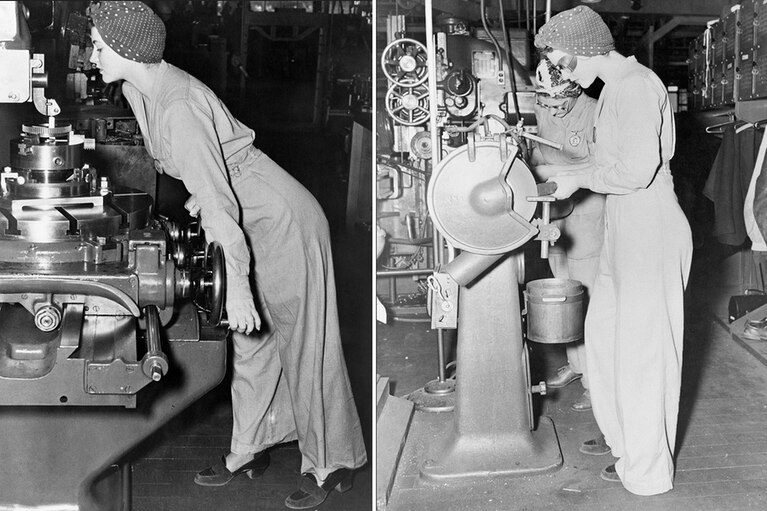 Two images of Naomi Parker Fraley working during the war (Fraley Family)
Two images of Naomi Parker Fraley working during the war (Fraley Family)
Fraley did an interview with People magazine in 2016 about her connection with the name Rosie the Riveter. She was an employee at a Navy machine shop during World War II and believed it was her picture used with the campaign slogan aimed at recruiting female workers for the war effort. More than 310,000 women worked during the war. Fraley told People magazine that “The women of this country these days need some icons. If they think I’m one, I’m happy.”
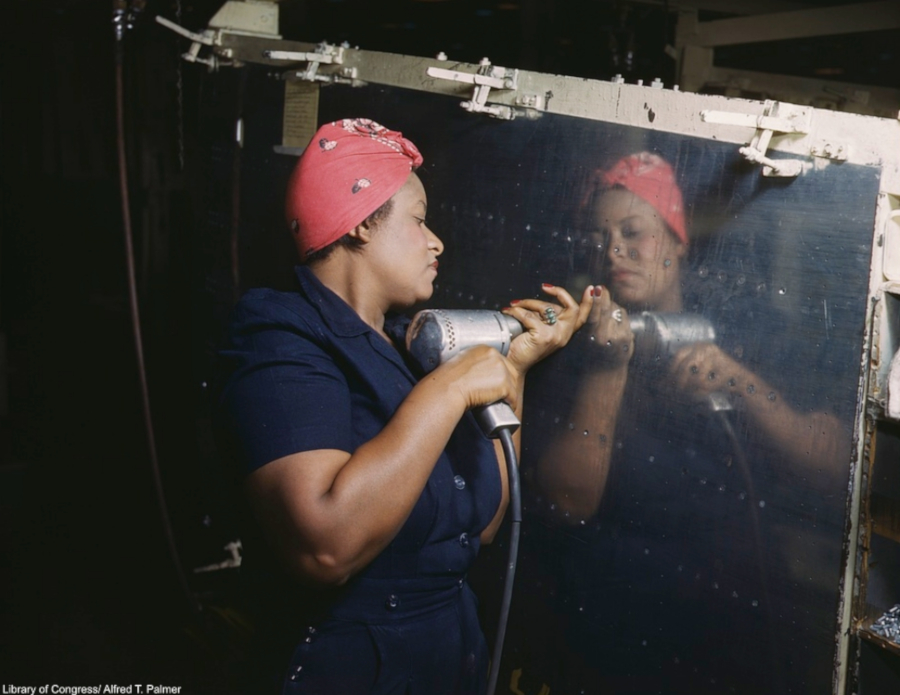 African American women working on wartime production (Library of Congress)
African American women working on wartime production (Library of Congress)
The iconic “We Can Do It” poster features a woman raising her fist with rolled up sleeves. Another great poster, “Soldiers Without Guns,” had women standing together. These were great, inspiring symbols admired by many in the decades since. I do not know if Fraley was a part of the “We Can Do It” poster, but she was a Rosie the Riveter. Professor James Kimble spent many years researching the woman who was on the “We Can Do It” poster. Kimble concluded that it was Fraley. Unfortunately, she passed away on January 22, 2018 at the age of 96.
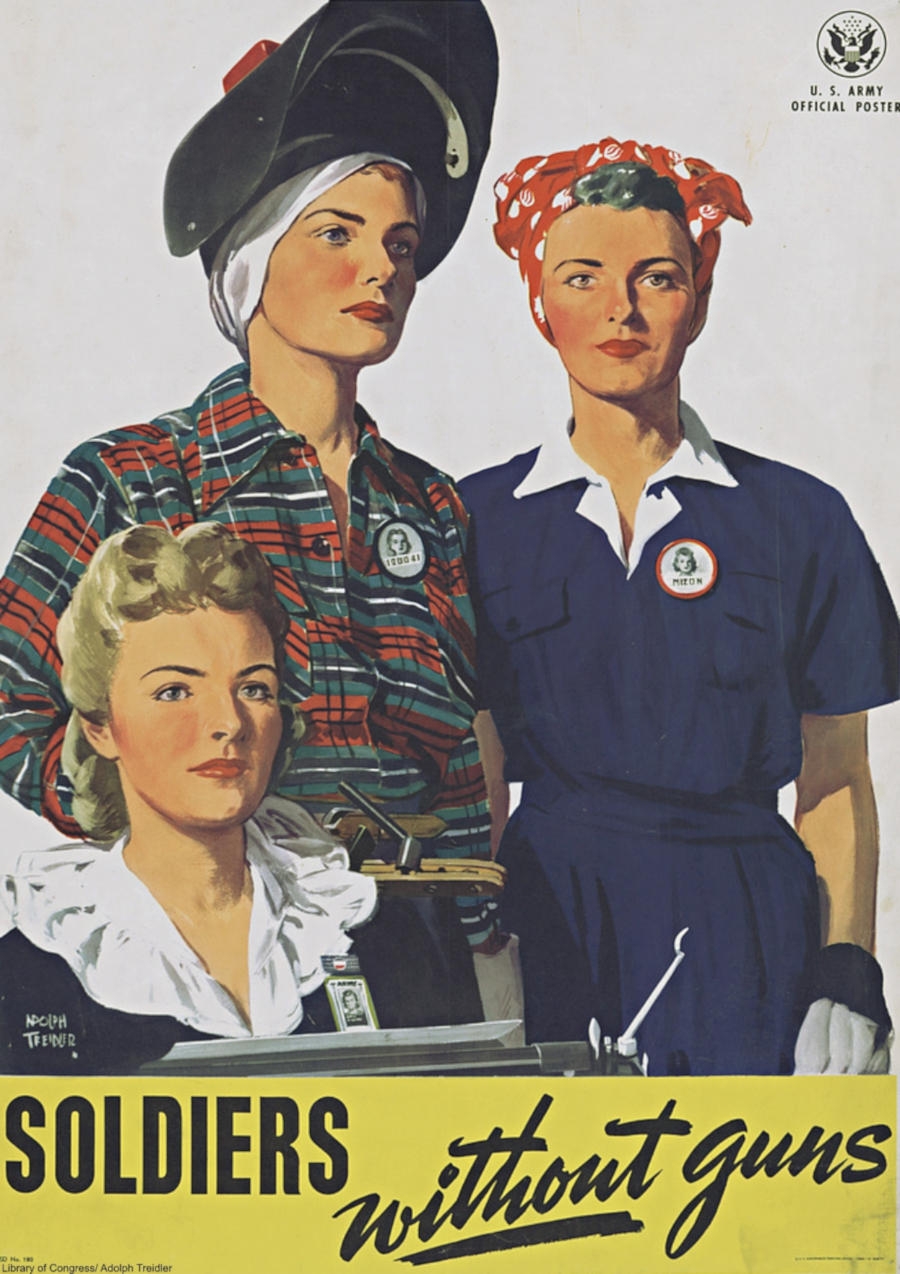 Soldiers Without Guns poster (US Army)
Soldiers Without Guns poster (US Army)
Americans and the United States Government have a high regard for the women who served their country during World War II. The Rosie the Riveter “We Can Do It” poster became one of the most famous and popular posters in the world. During the war, many women had the opportunity to learn new skills and were paid increased wages working in various industries. “Rosies” were patriots from varying backgrounds, including single women, housewives, and grandmothers.
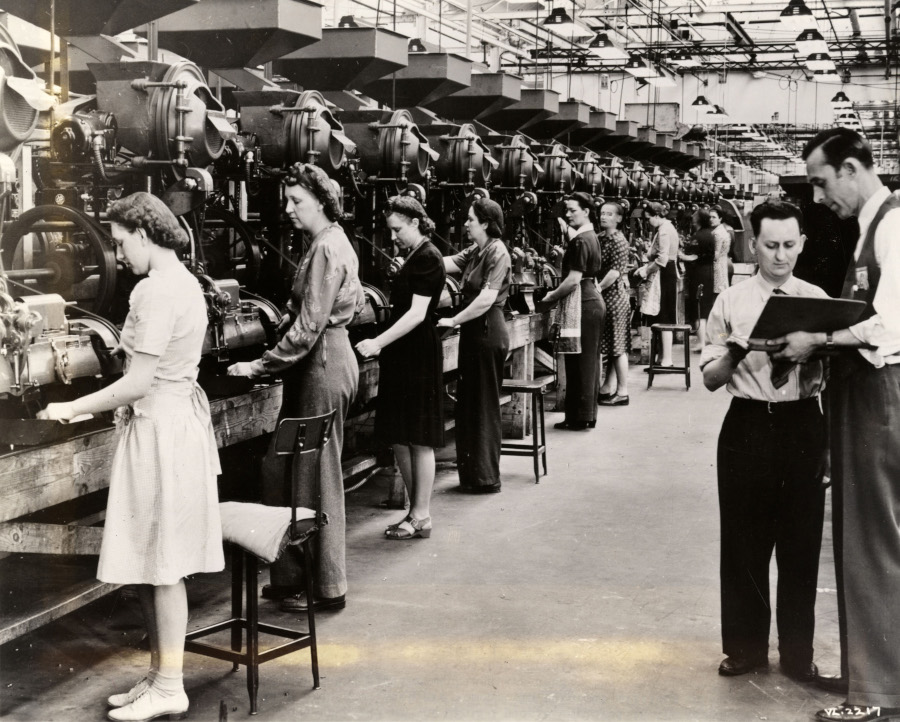 Women working the assembly line at the Chrysler Evansville Ordnance Plant (Detroit Public Library Digital Collection)
Women working the assembly line at the Chrysler Evansville Ordnance Plant (Detroit Public Library Digital Collection)
In 1943, a song called “Rosie the Riveter,” written by Redd Evans and John Jacob Loeb, became very popular among Americans.
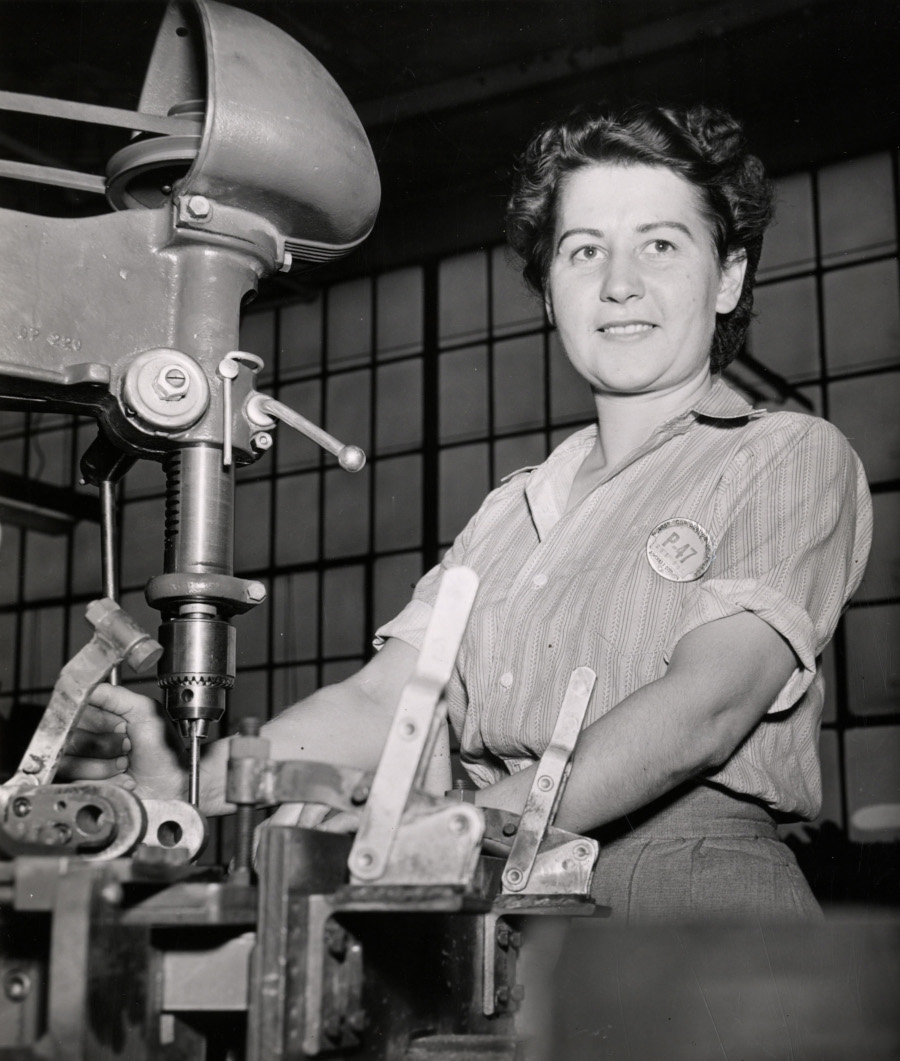 A woman works on operating machinery in the assembly of the P 47 Thunderbolt (Detroit Public Library Digital Collection)
A woman works on operating machinery in the assembly of the P 47 Thunderbolt (Detroit Public Library Digital Collection)
In conclusion, Rosie the Riveter was a great inspiration for many Americans, myself included. One of the greatest contributions women made over the years was helping America win the war, changing the workplace and setting the stage for generations to come.
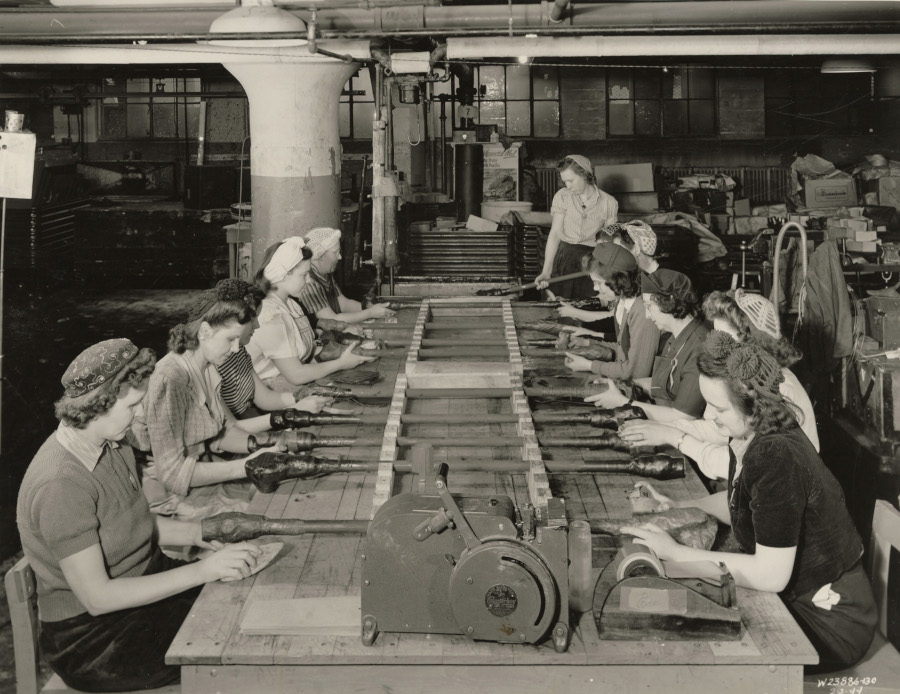 Women workers rustproofing and wrapping shafts at GMC Truck and Coach (Detroit Public Library Digital Collection)
Women workers rustproofing and wrapping shafts at GMC Truck and Coach (Detroit Public Library Digital Collection)
EDITORS NOTE: You can learn more about the story of Rosie the Riveter from Alison Beatty, a member of our Speakers Bureau, and our partners at the Yankee Air Museum in Belleville.
Bibliography
Fox, Margalit. “Naomi Parker Fraley, the Real Rosie the Riveter, Dies at 96.” The New York Times. January 22, 2018.


